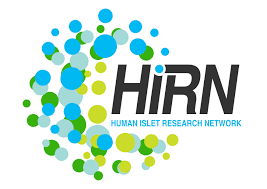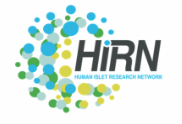X
X
Leaving Community
Are you sure you want to leave this community? Leaving the community will revoke any permissions you have been granted in this community.
No
Yes
X
DiaComp Funding Opportunity: 2020 DiaComp Pilot and Feasibility Program
Here is the information from DiaComp:
"
ABOUT THE DIABETIC COMPLICATIONS CONSORTIUM (DiaComp):
The goal of the NIDDK-sponsored Diabetic Complications Consortium (DiaComp) is to advance the study of diabetic complications and promote communication and collaboration between investigators involved in complications research by supporting scientific meetings and funding new research activities.DiaComp Pilot and Feasibility Program
This program solicits and funds small Pilot and Feasibility (P&F) projects in high-impact areas of diabetic complications research that fall within the primary mission of the NIDDK (please see the NIDDK website for full details). Diabetic complications of interest to the NIDDK include diabetic nephropathy, uropathy, neuropathy, gastrointestinal, liver, bone, and wound healing. Applications focused on all other diabetic complications (including diabetic retinopathy and cardiovascular disease) do NOT fall within the primary mission of the NIDDK and will be deemed non-responsive. If an application proposes to study the interconnectivity of multiple diabetic complications, a majority of the proposal must address an NIDDK complication of primary interest.This program aims to support discovery (hypothesis generating) and innovative (high-risk/high-reward) research that will advance our understanding of diabetic complications and that are increasingly difficult to support through standard NIH mechanisms. Basic, translational and clinical research proposals are encouraged. When appropriate, the use of human samples is strongly encouraged. Research involving human subjects is limited to observational studies with non-invasive or minimally invasive testing and must have IRB approval that includes the collection and use of human samples for research purposes. Clinical trials, as defined by the NIH, are beyond the scope of this program. For further details and resources to help clarify the NIH definition, please consult information posted at the NIH Clinical Trials website (https://grants.nih.gov/policy/clinical-trials/definition.htm). Awards are expected to prepare the applicant(s) to submit a future investigator-initiated project (e.g. NIH R01). Lower priority will be given to applicants who have received DiaComp support in the past three years. Foreign applications are NOT allowed.
Applications of 5 pages requesting up to $100,000 for one year are due June 10, 2020.
Budget requests should be commensurate with project needs over a one-year project period. While average DiaComp P&F awards are $60,000 Total Costs for one year, well justified requests for support of up to $100,000 Total Costs per year will be considered.
When appropriate, the use of human samples is strongly encouraged, including the linking of human samples to existing tissue repositories and databases (e.g. the NIDDK repository [www.niddkrepository.org/home/] or dkNET [http://www.dknet.org/]). Research involving human subjects is limited to observational studies with non-invasive or minimally invasive testing and must have IRB approval that includes the collection and use of human samples for research purposes. Interventional clinical trials are beyond the scope of this program.
Streptozotocin (STZ) is used by DiaComp participants to induce diabetes in several animal models. STZ is toxic to the insulin-producing beta cells of the pancreas and used to induce diabetes similar to a type I diabetic patient. Some reports suggest cellular toxicity outside of the pancreas. STZ also exhibits broad spectrum antibacterial properties and may alter the gut microbiota. Applicants are reminded to justify their choice of approaches and models of diabetes, including the STZ model, to ensure that appropriate controls are included in all studies and to consider use of complementary approaches. Reviewers are asked to accept use of appropriately justified STZ-diabetes models with appropriate controls unless they can provide direct evidence that the model is inappropriate for the proposed studies.
Applications are due June 10, 2020 for October start dates."
- Role of the Microbiome in Diabetic Complications
The microbiome consists of genetic material and metabolites from all microbes that live on and inside the body, including bacteria, archaea, fungi, protozoa and viruses. The community of microorganisms that make up the microbiome are known to modulate key physiological processes, including pathways that may influence the onset and/or severity of diabetic complications. DiaComp is inviting applications that define relationships between the microbiome and diabetic complications in mouse models. - Targeted Delivery of Therapeutics
There is a critical need to develop highly efficient delivery technologies that target therapeutics to specific cells and tissues relevant to diabetic complications, including approaches that account for the effects of disease. - Imaging and Tissue Interrogation
There is a critical need to develop innovative technologies to image or interrogate human tissue from end organs of diabetic complications to better understand (patho)physiology and (dys)function, including slide-based imaging modalities with the ability to detect and spatially resolve single cell -omics. - Sex Differences
Diabetic complications manifest themselves differently between men and women. Understanding the molecular underpinnings of these manifestations is critical to designing tailored therapeutic approaches. - Autonomic Neuropathy
Diabetic complications can result from several factors including direct effects of hyperglycemia, underlying microvascular or autonomic nerve dysfunction, or mixed effects from multiple contributing factors. Additional studies are needed to better understand the relative contribution of autonomic innervation on the diabetic dysfunction of the gastrointestinal tract, kidneys, and urologic organs (bladder, prostate, erectile tissue). - Pre-clinical Testing
There is a compelling need to translate novel, scientifically meritorious therapeutic interventions for diabetic complications.
Budget requests should be commensurate with project needs over a one-year project period. While average DiaComp P&F awards are $60,000 Total Costs for one year, well justified requests for support of up to $100,000 Total Costs per year will be considered.
When appropriate, the use of human samples is strongly encouraged, including the linking of human samples to existing tissue repositories and databases (e.g. the NIDDK repository [www.niddkrepository.org/home/] or dkNET [http://www.dknet.org/]). Research involving human subjects is limited to observational studies with non-invasive or minimally invasive testing and must have IRB approval that includes the collection and use of human samples for research purposes. Interventional clinical trials are beyond the scope of this program.
Streptozotocin (STZ) is used by DiaComp participants to induce diabetes in several animal models. STZ is toxic to the insulin-producing beta cells of the pancreas and used to induce diabetes similar to a type I diabetic patient. Some reports suggest cellular toxicity outside of the pancreas. STZ also exhibits broad spectrum antibacterial properties and may alter the gut microbiota. Applicants are reminded to justify their choice of approaches and models of diabetes, including the STZ model, to ensure that appropriate controls are included in all studies and to consider use of complementary approaches. Reviewers are asked to accept use of appropriately justified STZ-diabetes models with appropriate controls unless they can provide direct evidence that the model is inappropriate for the proposed studies.
Applications are due June 10, 2020 for October start dates."
Source and more information: https://www.diacomp.org/shared/pilotFeasibility.aspx
X






